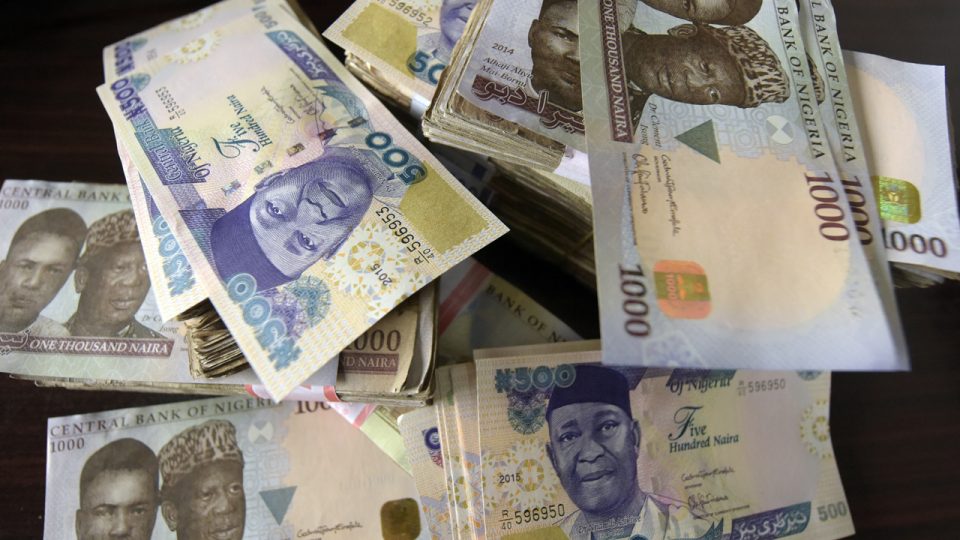The Nigerian naira has continued to weaken against the US dollar, as it recorded another round of depreciation in March 2025, both at the official market and in the parallel market. The value of the naira dropped by 2.4 per cent at the Nigerian Autonomous Foreign Exchange Market (NAFEM) and 2.6 per cent in the black market compared to February.
According to the latest monthly report by Afrinvest, titled ‘Analysing Global and Nigerian Economies & Financial Markets’, the naira closed at N1,536.82 per dollar at the NAFEM window and N1,530 at the parallel market by the end of March.
AIICO Capital, an investment company, also confirmed the naira’s struggles in its own March macroeconomic report. It noted that despite several interventions by the Central Bank of Nigeria (CBN) to provide foreign exchange, the naira continued to fall.
“The naira experienced serious pressure in March due to strong demand for dollars,” AIICO Capital explained. “The CBN sold about $668.8 million to help the market, but it was not enough. The naira still dropped by almost 3 per cent, from N1,492.49 at the start of March to N1,536.82 by the end.”
Demand for dollars came mainly from foreign portfolio investors and Nigerian companies trying to meet their import and business needs. The black market also followed the same trend, losing about N43.50 and closing around N1,536 per dollar.
Even though the CBN’s interventions helped increase dollar supply briefly in the middle of the month, the demand still outweighed supply. By the last week of March, the naira managed to gain slightly but was still under pressure. On a quarterly basis, the currency lost 7 basis points.
Nigeria’s external reserves also went down during the month. AIICO Capital reported that reserves dropped by around $110 million to end at $38.31 billion.
Looking ahead, AIICO believes the CBN will continue to support the market with liquidity to keep the naira stable. However, it warned that global events, especially the recent trade policies introduced by US President Donald Trump, may cause more problems for the Nigerian currency. These policies include new tariffs and possible retaliation from other countries, which could push investors away from Nigeria and increase market uncertainty.
The CBN also confirmed the effect of global economic changes on the naira. In a statement signed by the Director of Financial Markets, Mrs. Omolara Duke, the bank said it sold $197.71 million to authorised dealers on Friday, April 4, 2025, to support the naira.
The apex bank explained that this move was part of its goal to ensure there is enough foreign exchange in the system and to prevent the market from becoming unstable. The dollars were sold at rates between N1,519 and N1,595.20.
Duke added that the CBN will continue to monitor the market closely and adjust its strategies when needed. She also reminded banks and dealers to follow the rules under the Nigeria FX Market Code.
In the first week of April, the naira experienced more ups and downs at the interbank market. It started the week steady, trading between N1,525 and N1,535, helped by CBN’s continued support and some inflows from foreign investors. But things changed quickly midweek when more investors rushed to buy dollars. At the same time, global oil prices dropped because OPEC+ increased oil supply. The announcement of more tariffs by President Trump added to the tension, making investors more cautious.
All these factors led to increased demand for foreign exchange, pushing the naira as high as N1,570 per dollar. By the end of the week, the naira had lost 1.97 per cent, closing at N1,567.02 per dollar. Nigeria’s foreign reserves also dropped by $149 million to $38.15 billion.
Experts at Afrinvest believe the pressure on the naira will get worse following the end of the naira-for-crude initiative. Before now, some crude oil was exchanged directly for naira, but that programme has now stopped. This means refineries and fuel importers will now compete for scarce dollars, pushing demand even higher.
CardinalStone, another investment firm, noted that the foreign exchange market is under more stress because many investors are moving their money to safer countries. The naira lost 8.6 per cent in one month and 5.8 per cent so far this year.
They also warned that Nigeria might struggle to meet its revenue goals because oil production fell to 1.67 million barrels per day in February, down from 1.74 million in January. At the same time, oil prices dropped by over 14 per cent this year.
Former Chief Economist of Zenith Bank, Mr. Marcel Okeke, also spoke about the possible ripple effects. He warned that Trump’s new trade war could cause inflation in many countries, including Nigeria, because the country imports most of its goods.
“We should prepare for an increase in the cost of imported goods,” Okeke said.
